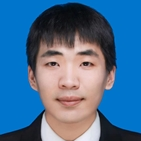Artificial Intelligence in Power Electronics Converters: Design, Control and Maintenance
A special issue of Electronics (ISSN 2079-9292). This special issue belongs to the section "Power Electronics".
Deadline for manuscript submissions: closed (15 April 2024) | Viewed by 275
Special Issue Editors
Interests: power electronics; electric vehicle technologies; machines and drives; wireless power transfer
Special Issues, Collections and Topics in MDPI journals
Special Issue Information
Dear Colleagues,
Power electronics converters (PECs) have been widely utilized in various applications, including electric vehicles (EVs), consumer electronics, and microgrids. The past two decades have witnessed the rapid development of artificial intelligence (AI) techniques, and numerous attractive AI models such as convolutional neural networks (CNNs), variational autoencoders (VAEs), and generative adversarial networks (GANs) have been invented. The development of AI provides an excellent opportunity to research PECs more efficiently and intelligently. For example, AI has been utilized to help optimize the parameters, components, and topology of converters based on the desired specifications and constraints. This Special Issue aims to provide an opportunity for academic researchers and industrial engineers to present, discuss, and exchange their latest results in applications of AI in power electronics converters, including design, control, and maintenance.
Topics of interest include, but are not limited to:
- Topology derivation of PECs;
- Parameter optimization of PECs;
- AI-based modeling and control of PECs;
- Condition monitoring of PECs;
- Fault diagnosis and prognosis of PECs;
- Parameter identification of PECs;
- Computer-aided techniques in the design, control, and maintenance of PECs;
- Review papers on AI techniques and development in PECs.
Dr. Chaoqiang Jiang
Dr. Liping Mo
Guest Editors
Manuscript Submission Information
Manuscripts should be submitted online at www.mdpi.com by registering and logging in to this website. Once you are registered, click here to go to the submission form. Manuscripts can be submitted until the deadline. All submissions that pass pre-check are peer-reviewed. Accepted papers will be published continuously in the journal (as soon as accepted) and will be listed together on the special issue website. Research articles, review articles as well as short communications are invited. For planned papers, a title and short abstract (about 100 words) can be sent to the Editorial Office for announcement on this website.
Submitted manuscripts should not have been published previously, nor be under consideration for publication elsewhere (except conference proceedings papers). All manuscripts are thoroughly refereed through a single-blind peer-review process. A guide for authors and other relevant information for submission of manuscripts is available on the Instructions for Authors page. Electronics is an international peer-reviewed open access semimonthly journal published by MDPI.
Please visit the Instructions for Authors page before submitting a manuscript. The Article Processing Charge (APC) for publication in this open access journal is 2400 CHF (Swiss Francs). Submitted papers should be well formatted and use good English. Authors may use MDPI's English editing service prior to publication or during author revisions.
Keywords
- artificial intelligence
- machine learning
- power electronics converters
- topology derivation of converter
- optimal control of converters
- maintenance of converters






